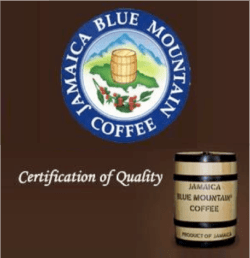
Myth or Fact? 5 Common Coffee Myths Debunked
Coffee myths persist, even for this delicious beverage. How do you take your coffee? Rich, strong, smooth, black, creamy, with or without sugar or honey? In whatever form you like it, if it is made from hand-selected smooth beans, with a great flavor, vibrant acidity, and the barest bitterness, then you have in your hand your perfect brew. Sadly, many people still have reservations about this great gift, thanks to some enduring coffee myths.
As you enjoy your cup of awesomeness, let us discuss and debunk the top 5 coffee myths!
5 MOST COMMON COFFEE MYTHS DEBUNKED
Coffee Myth #1: Drinking Coffee Results in Dehydration
Nope, FALSE Myth. Sip on!
Despite some of the prevailing coffee myths, moderate coffee consumption can actually be beneficial. One concern is that coffee’s diuretic effect leads to dehydration. Caffeine does indeed stimulate urine production, but the water content in coffee itself counteracts this effect.
Studies on moderate coffee intake (around 300mg, which is roughly the amount in a typical cup) before exercise have shown no significant dehydration, and may even improve performance. This is because caffeine increases adrenaline production, which improves blood flow to muscles, including the heart. So, as long as you maintain your daily water intake (eight 8-ounce glasses are recommended), you can enjoy your coffee without worry.
Coffee myths naturally surround this popular beverage, but science debunks many of these misconceptions.
Coffee Myth #2: Coffee Is Bad for Your Health
FALSE AGAIN. Sip Without Worry!
Despite numerous coffee myths that persist, drinking coffee in moderation has been proven to have several health benefits. Moderate coffee is defined as around 3-5 cups of coffee a day by the European Food Safety Authority’s review of caffeine safety.
Coffee is very rich in polyphenols, micronutrients packed with antioxidants and other health benefits. These antioxidants help rid the body of free radicals, toxic waste products of the body’s metabolic processes that can cause harm. One key Polyphenol in coffee, chlorogenic acid, has been linked to a reduced risk of cardiovascular diseases.
In fact, countless studies contradict some of the most common coffee myths. For instance, tons of evidence shows that coffee consumption reduces the incidence of liver cancer by 40%. It also reduces the incidence of other liver diseases like Cirrhosis by 25-75% and slows the progression of the disease. This is mainly because coffee appears to positively affect liver enzymes.
So, the next time you hear a coffee myths, remember that moderate coffee consumption can actually be quite beneficial for your health.
Coffee Myth #3: Coffee Can Result in Stunted Growth
WRONG AGAIN. Grow On, Coffee Lovers!
One of the most persistent coffee myths is that it stunts growth. This misconception might be linked to the belief that coffee increases the risk of osteoporosis. While coffee does contain caffeine, a stimulant that may slightly reduce calcium absorption, adding a few spoons of milk counteracts this effect.
Thankfully, science debunks this coffee myth. A study examining the effect of caffeine on bone gain in 81 girls aged 12-18 found no significant correlation between coffee and stunted growth.
It’s important to remember moderation is key. Health Canada recommends daily caffeine intake for children:
- 4-6 years: 45mg
- 7-9 years: 62.5mg
- 10-12 years: 85mg
For reference, an 8oz cup of brewed coffee contains about 179mg of caffeine, so be mindful of other dietary sources of caffeine. So, ditch the coffee myths about stunted growth and enjoy your moderate coffee intake responsibly!
Coffee Myth #4: The Darker the Coffee Bean is Roasted, the Higher the Caffeine Content
Some enduring coffee myths embrace darker roasts contain more caffeine. In reality, roasting is simply a drying process that unlocks the aroma and flavor trapped within green coffee beans. Roasts are categorized as light, medium, medium-dark, and dark. Darker roasts have a higher oil content on the surface, leading to a more bitter taste and less acidity.
Light roast coffee, for instance, is light brown with no surface oil because the beans are roasted less intensely. This preserves a crisp acidity and brighter flavors, as light roasting allows more unique bean characteristics to shine through.
Another coffee myths include that light roasts are weaker. Due to higher moisture content, light roasts are actually denser than dark roasts. Interestingly, they may also have a slightly higher caffeine content per bean since no caffeine is burned off during roasting.
Coffee Myth #5: Coffee Can Cure a Hangover
While anecdotes recommend using caffeine to cure a hangover from an alcohol binge, this is one of many common coffee myths. Caffeine, a stimulant, triggers the release of adrenaline, which increases heart rate and blood flow. This can make you feel more alert and temporarily mask some hangover symptoms. However, it doesn’t address the root cause – the alcohol remains in your system. Your body needs time to metabolize it, and until then, you’re not truly sober.
Coffee myths often overlook the fact that caffeine’s stimulating effect does little for hangover headaches. In fact, some people believe this pseudo-alertness caused by coffee might lead them to mistakenly feel okay to consume more alcohol, perpetuating the unpleasant cycle. So, the next time you hear the age-old hangover cure of coffee, remember these coffee myths and opt for rehydration and rest instead.
Now you are better informed, why not share with a loved one?
- Phone Number : 305-814-4920
- Email Address : sales@jamaicancoffeeclub.com
- Location : 580 NW 5th Street 19588, Plantation, Fl. 33318
- Youtube Jamaican Coffee Club
OUR PHILOSOPHY
We promise to give our customers an unparalleled experience from the first contact with us on our website, through to the final sip of our unforgettable coffee. Our aim is to make you say – “Wow. This is much better than I expected”…

Copyright © 2024 Jamaican Coffee Club | Powered by Jamaican Coffee Club


